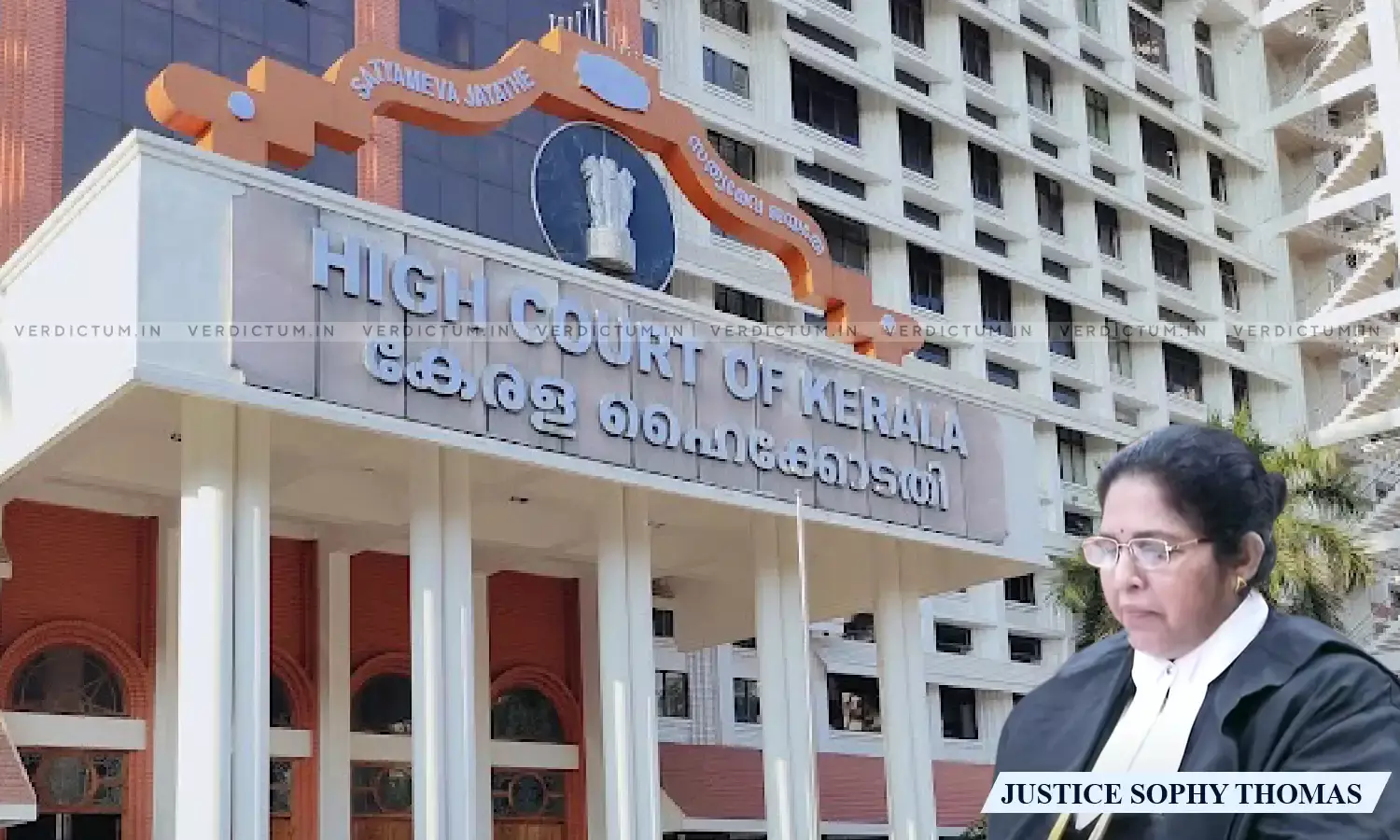Abkari Act- Prosecution Duty Bound To Prove That Sample Taken From Contraband Is Sample Which Reached Chemical Examiner: Kerala HC Sets Out Latches On Part Of Prosecution While Acquitting Accused

Emphasizing that absence of proper impression of specimen seal in the mahazar and absence of sample seal in the forwarding note etc. are circumstances to doubt the identity of the sample seized and the sample sent for chemical analysis, the Kerala High Court held that prosecution is duty bound to prove that there was tamper proof dispatch of the sample, to show that the sample taken from the contraband seized from the accused, was the sample which reached the hands of the chemical examiner.
Since the prosecution failed to prove the same, the High Court refused to accept that the link was established.
A Single Judge Bench of Justice Sophy Thomas observed that “the absence of specimen seal in the mahazar and forwarding note, non-mentioning of the name of the Excise Guard in the forwarding note, non-examination of the thondi clerk who dispatched the sample or the Excise Guard who took the sample to the lab etc. are serious laches which are fatal to the prosecution case. So, it has to be held that, prosecution failed to prove its case beyond any shadow of doubt, and so, the revision petitioner is liable to be acquitted of the offences alleged under Sections 8(1) and 8(2) of the Abkari Act”.
Advocate M.T. Sureshkumar appeared for the Petitioner, whereas Advocate M.C Ashi appeared for the Respondent.
The brief facts of the case were that the revision petitioner was found carrying a 5 litre black can containing 4.5 litres of illicit arrack, and the second accused was found following him. The preventive officer, and excise party on detecting the offence, arrested the petitioner and seized the contraband, whereas the second accused ran away. Later, charges were framed by the Trial Court against both accused under Sections 8(1) and (2) of the Abkari Act.
After considering the submission, the Bench found that in the forwarding note, the space for sample seal is provided but, no sample seal is affixed there.
The Bench therefore elaborated that when there is a specific space provided in the forwarding note for affixing the sample seal, and that space is sufficient for affixing the same, the detecting officer was bound to affix it in the space provided, and if it was not done, it should have been explained with sufficient reason.
“In the case on hand, since copy of the specimen seal alleged to have been separately attached was not seen along with copy of the forwarding note, the trial court also did not get the opportunity to verify the specimen seal”, added the Bench.
The Bench also noted from the chemical analysis report that the Excise Guard brought the sample for analysis to the chemical examiner’s lab, but the Excise Guard who took the sample to the lab or the thondi clerk who dispatched the sample and entrusted the same with the Excise Guard, were not examined by the prosecution.
Therefore, in absence of tamper proof dispatch of the sample to the laboratory, the High Court found the petitioner not guilty of the offences under Sections 8(1) and 8(2) of the Abkari Act, and set aside the conviction.
Cause Title: Shijo Das v. State of Kerala [Neutral Citation: 2023/KER/68681]
Click here to read/ download the Judgment

